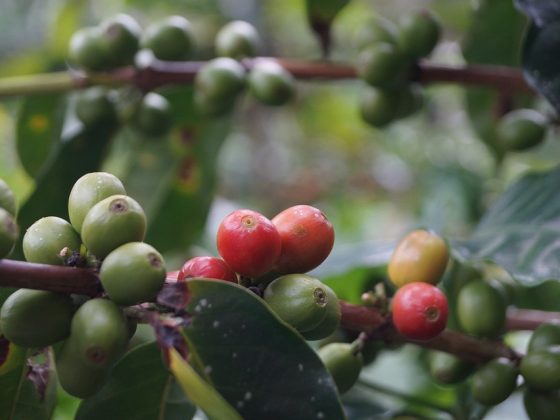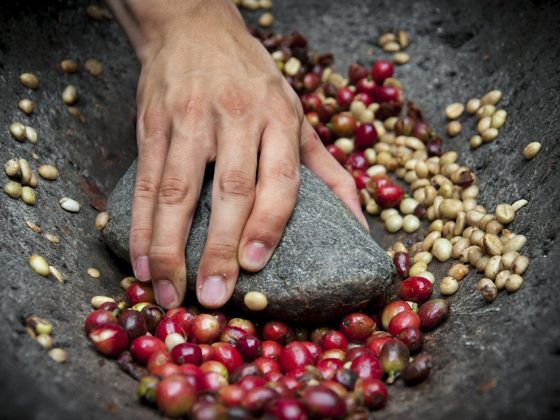end.
Coffee is one of the most beloved beverages in the world, with an estimated 2.25 billion cups consumed every day. From its humble origins in Ethiopia to its widespread popularity today, coffee has captured the hearts and taste buds of people across the globe. One of the most fascinating aspects of coffee is the incredible diversity of coffee bean origins found around the world. Each origin has its own unique flavor profile, influenced by factors such as climate, soil, altitude, and processing methods.
Ethiopia is often considered the birthplace of coffee, with legends dating back to the 9th century of a goat herder named Kaldi discovering the energizing effects of the coffee cherry. Ethiopian coffee beans are known for their bright acidity, fruity and floral notes, and complex flavors. Some popular Ethiopian coffee varieties include Yirgacheffe, Sidamo, and Harrar.
In neighboring Kenya, coffee is a major export crop and is known for its bright acidity, full body, and wine-like flavors. Kenyan coffee beans are grown at high altitudes on the slopes of Mount Kenya and Mount Elgon, which contributes to their unique flavor profile.
In South America, countries like Colombia, Brazil, and Peru are known for their high-quality coffee beans. Colombian coffee is famous for its smooth, mild flavor with fruity and nutty notes, while Brazilian coffee tends to be nutty, chocolatey, and low in acidity. Peruvian coffee beans are grown in the Andes Mountains and often have floral, fruity, and citrus flavors.
Central America is home to some of the most sought-after coffee beans in the world, with countries like Guatemala, Costa Rica, and Panama producing top-quality coffees. Guatemalan coffee beans are known for their medium body, bright acidity, and complex flavors, while Costa Rican coffee beans are prized for their sweetness, cleanliness, and balance. Panamanian coffee beans, particularly those from the Boquete region, are highly sought after for their vibrant acidity, floral aromas, and nuanced flavors.
The African continent is home to several other coffee-producing countries, including Rwanda, Tanzania, and Burundi. Rwandan coffee beans are known for their bright acidity, medium body, and floral notes, while Tanzanian coffee beans often exhibit fruity, wine-like flavors. Burundi coffee beans are gaining recognition for their sweetness, complexity, and bright acidity.
Asia is home to a diverse range of coffee origins, including Indonesia, Vietnam, and India. Indonesian coffee beans, such as Sumatra and Java, are known for their full body, low acidity, and earthy flavors. Vietnamese coffee, often used in traditional egg coffee or iced coffee, tends to be bold, rich, and slightly bitter. Indian coffee beans are grown in the lush hills of Karnataka and Kerala and are known for their medium body, low acidity, and spicy notes.
As coffee producers continue to experiment with different growing regions, processing methods, and varietals, the world of coffee continues to expand and evolve. Coffee lovers can now enjoy beans from countries like Ethiopia, Kenya, Colombia, Guatemala, Panama, Rwanda, Indonesia, and India, each offering a unique and distinct flavor experience.
Whether you prefer a light and fruity Ethiopian coffee, a smooth and chocolatey Brazilian coffee, or a bold and earthy Sumatran coffee, the incredible diversity of coffee bean origins around the world ensures that there is a perfect cup of coffee for every palate.
FAQs:
1. What factors influence the flavor of coffee beans?
Several factors can influence the flavor of coffee beans, including climate, altitude, soil, processing methods, and varietals. The combination of these factors can result in a wide range of flavor profiles, from bright and fruity to bold and earthy.
2. Are there any rare or exotic coffee bean origins?
Yes, there are several rare or exotic coffee bean origins that are highly sought after by coffee enthusiasts. Some examples include Jamaican Blue Mountain coffee, Hawaiian Kona coffee, and Yemeni coffee.
3. How can I experience the diversity of coffee bean origins?
One of the best ways to experience the diversity of coffee bean origins is to try different single-origin coffees from around the world. Many specialty coffee roasters offer sampler packs or subscription services that allow you to explore a variety of flavors and profiles.
4. Are there any ethical considerations when choosing coffee beans?
Yes, it’s important to consider the ethical and sustainable practices of coffee producers when choosing coffee beans. Look for certifications such as Fair Trade, Rainforest Alliance, or Organic to ensure that the coffee you are purchasing is sourced responsibly and supports the livelihoods of coffee farmers.











